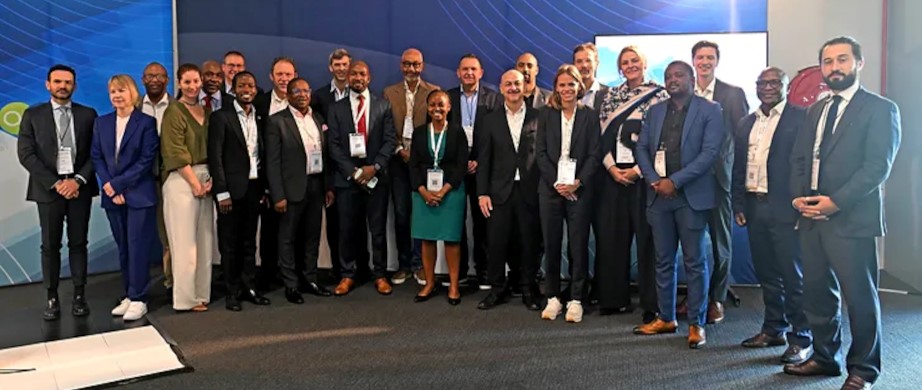FAO attends the Agri Indaba Conference in South Africa

The FAO Investment Centre participated in the annual African Agri Investment Indaba conference in South Africa in November – an event that brought together more than 600 representatives from the public and private sectors to discuss key trends, opportunities and challenges in agrifood investing across Africa.
Representatives from governments, development institutions, banks, funds, farmers, small and medium enterprises (SMEs), large agribusinesses and agritech companies were among those in attendance.
Alexandre Kaufmann, FAO Agribusiness Finance Officer, presented the key findings from a study on the challenges and solutions for agri-SME finance in multiple crises, with a focus on sub-Saharan Africa. This research was carried out by the Investment Centre in partnership with SAFIN, a global network of institutions working on agri-SME financing, and ISF Advisors, a strategic and financial advisory group focused on transforming global food systems.
Agri-SMEs in sub-Saharan Africa have been facing rising operational and financial challenges over the past two years due to multiple ongoing, and often inter-connected, crises. Drawing on qualitative and quantitative data, the study aims to identify those challenges and further inform the response of donors and financial investors to build a more resilient sector.

Following the presentation, Kaufmann moderated a roundtable discussion on how agribusinesses can attract capital from development finance institutions (DFIs). Panelists included representatives from three leading development banks – the European Bank for Reconstruction and Development (EBRD), Finnfund and FMO – whose cumulative portfolio of private sector agrifood investments total more than EUR 5 billion, as well as two agribusiness companies, United Exports and Soufflet Malteries.
Participants agreed that transforming agrifood systems to be more resilient and sustainable calls for more financing and a closer partnership between the public and private sectors. They also discussed how development banks and agribusinesses can work together to foster climate-oriented initiatives in the agrifood sector.
Representatives from international financial institutions mentioned the importance of combining finance with technical assistance to maximize impact towards agrifood systems transformation. In this regard, the EBRD highlighted the extremely fruitful collaboration with FAO on upgrading sustainability standards along agrifood value chains in sectors where the EBRD has been investing.
One notable difference from the previous year’s conference was the addition of agribusiness companies on the DFI panel.
“This conference is a key event dedicated to boosting private sector investment in the agrifood sector in Africa,” said Giovanni Munoz, FAO Service Chief for East and Southern Africa. “We definitely need more of these public and private partnerships to be able to sustainably transform agrifood systems.”
“Part of our job as FAO is to help financial institutions do more and better in terms of agrifood investment,” he added. “At events like Indaba and FAO’s Hand-in-Hand Investment Forum, we’re seeing people becoming more interested and active in this sphere, which I find very encouraging.”
